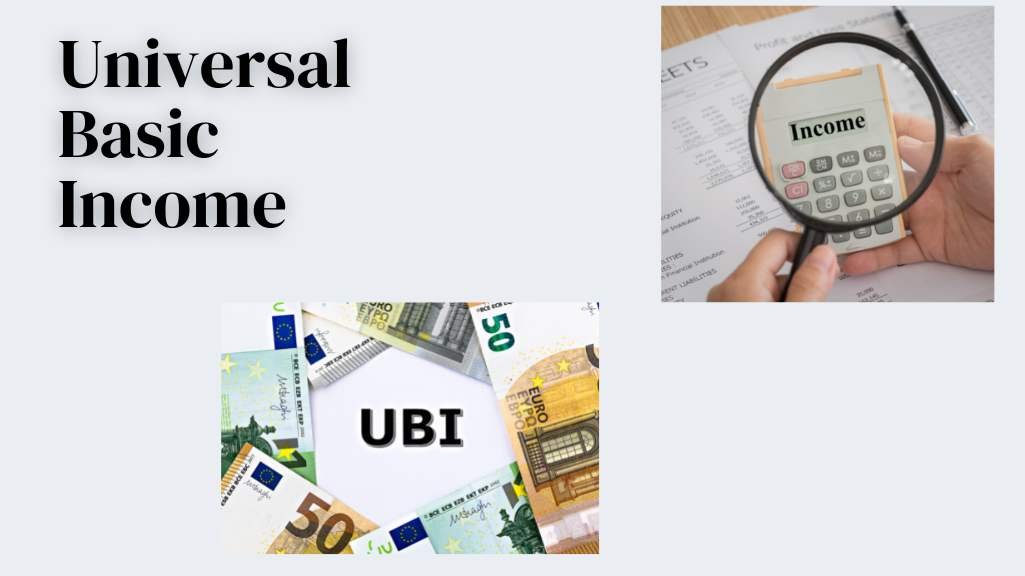Advantages and Disadvantages of Universal Basic Income
Vikash Jain
. 3 min read
A universal basic income (UBI) is a cash payment that is made at regular intervals by the government to all residents, regardless of their earnings or employment status. As of the 20th of October, 2020, pilot UBI or more limited basic income programs that give a basic income to a smaller group of people rather than an entire population have taken place or are currently underway in Brazil, Canada, China, Finland, Germany, India, Iran, Japan, Kenya, Namibia, Spain, and The Netherlands. These programs are not only of interest to economists and policymakers but also to developers who are working on creating innovative technological solutions to efficiently distribute and manage the universal basic income funds.

Universal Basic Income (UBI): Some Contextual Considerations
The nation is experiencing significant increases in both its rate of economic growth and its gross domestic product. On the other hand, this does not significantly contribute to the growth of individual and personal empowerment. As a result of rapid economic growth, millions of people are without jobs and live in abject poverty, as demonstrated over the course of the past three decades.
Characteristics of the Universal Basic Income, or UBI
- Universal Scheme The UBI is an example of a natural universal scheme. It means that the UBI is not targeted in any way.
- The recipients of the financial aid will receive their allotments at regular intervals, such as monthly or annually.
- Payment in Cash The recipients of the funds will have the cash deposited directly into their accounts. Therefore, they will not receive anything in the form of cash or vouchers redeemable for goods or services.
- This means that in order to be eligible for UBI, an individual does not need to provide evidence of their socio-economic identity or their employment status.
The Potential Benefits of Universal Basic Income: Reducing Poverty, Improving Work Conditions, and Supporting Caregiving
Brings about a Fall in the Rate of Poverty
Between the years 1795 and 1834, the Speenhamland System, which was the world's first guaranteed income program, prevented many families living in rural England from succumbing to starvation. The Basic Income Grant program in Namibia nearly halved the country's rate of people living in poverty between the years of 2007 and 2009.
Preventing the payment of low wages
Fans believe that UBI would provide workers with sufficient security to enable them to have more bargaining power. According to what Lowrey has said, a person should ask themselves, "Why take a crummy job for $7.25 an hour when you have a guaranteed $1,000 a month to fall back on?"
Finding solutions to the problem of technological unemployment
According to research conducted for the Federal Reserve Bank of New York, the length of time an individual is without work directly correlates to the amount of time it takes to find new work. People who are currently without work could more quickly find new employment and begin making a positive contribution to the economy.
Providing assistance to those who provide care for free
Those who are required to provide full-time care for ailing or differently abled relatives frequently have no choice but to give up their jobs. The Universal Basic Income (UBI) would make it possible for people who work in caregiving to support themselves financially.
Concern about UBI is warranted for a number of important reasons, Including the Following:
1. It is presented as a solution to technological unemployment; however, jobs are not being eliminated due to technological advancements; rather, work is undergoing transformation.
2. Universal Basic Income would reduce the size of the labor force because some people would view it as an alternative to work.
3. The UBI has a high monthly cost. A universal basic income of $12,000 per year would result in annual costs for the government of $2.4 trillion, which is equivalent to one-eighth of GDP.
4. There is a significant risk that those who are financially disadvantaged will become less motivated to work if they have access to an unrestricted source of income.
Key Takeaways
- Everyone, regardless of employment status or lack thereof, would receive the same amount of money under a system known as universal basic income.
- The universal basic income, or UBI, is an attempt to combat issues such as poverty, the loss of jobs, periods of transition between jobs, and other income gaps.
More Stories from
Unveiling the Magic: A Behind-the-Scenes Look at Movie Theaters and Cinema Culture
It is important to remember to enjoy the magic of the movies despite these behind-the-scenes revelations.
Benefits of Defensive Driving: Learn How It Can Save Your Life and Money
This article discusses the importance of defensive driving and its benefits.
The Enchanting Rhododendron: Himachal Pradesh's State Flower
Discover the captivating Rhododendron, the state flower of Himachal Pradesh, India. This vibrant evergreen shrub, native to the Himalayas, paints the landscape with breathtaking colors each spring.
Exploring the Uncharted: Speculative Insights into the World Beyond 2021
This article provides a brief overview of potential geopolitical shifts, technological advancements, environmental concerns, health challenges, economic developments.
Racial Justice and Inclusivity: Promoting Equality in Society
Explore the vital journey towards racial justice and inclusivity as we uncover the challenges faced by marginalized communities and the transformative power of inclusivity.











.png?width=40&aspect_ratio=1:1)

.png?width=40&aspect_ratio=1:1)